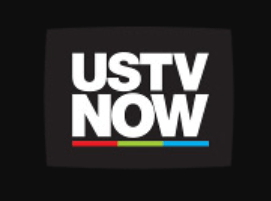 USTVNow brands itself as a legal video streaming service providing TV for "US Military and US citizens abroad."
USTVNow brands itself as a legal video streaming service providing TV for "US Military and US citizens abroad."
The platform is also popular with viewers outside these groups, many of whom access the service using the convenience of third-party Kodi add-ons designed for the task.
However, in recent weeks there has been a considerable amount of confusion over the use of Kodi add-ons with the USTVNow service.
A dedicated USTVNow add-on has been promoted by or made available from at least two official/semi-official locations – the actual Kodi team repository (where it remains today) and a page on unofficial Kodi add-on resource TVAddons. That has now been removed for reasons we'll explain shortly but first some background.
USTVNow Kodi Add-ons Have Been Flaky For a While
For many months, users of USTVNow who use a Kodi add-on to access the service have been complaining loudly via Twitter that compatibility is poor and errors are widespread.
Back in February, for example, a user based at an electronics store (Hydra Electronics) complained that after filing a complaint with USTVNow, the streaming service sent him back to the Kodi team to fix the problem, since they're supplying the add-on.
Since then there have been many other complaints but on July 30, USTVNow responded, clearly recommending the add-on located at Kodi.tv but noting that it doesn't provide any support for it, which is fair enough.
On August 4, however, everything changed, with USTVNow changing its position on Kodi altogether by not recommending the use of it at all.
What prompted this sudden turnaround isn't clear but one obvious explanation could be that having Kodi add-ons maintained by a third-party is just too much trouble.
However, activity behind the scenes also indicated that when third-party groups offer and promote Kodi add-ons for USTVNow, that might also present legal problems – at least for them.
For many years, third-party Kodi add-on site TVAddons not only offered or linked to a free add-on for the USTVNow service (which required an official USTVNow account) but has continually encouraged users to become customers of USTVNow.
On August 12, however, USTVNow operator Dutch Phone Holdings Inc. sent TVAddons an aggressive email titled "USTVNOW Enforcement".
USTVNow Accuses TVAddons of Trademark Infringement and Piracy
"It has come to our attention that you are promoting your services through your website using our trademark USTVNOW and our official logo," the email begins.
"USTVnow doesn't have or support any app. Our customer [sic] can watch live TV streams directly from our website. This fake app is misguiding our 1.6 million customers. You are also pirating our content from our website, ustvnow.com, and directing consumers to apps that appear to be DutchPhone's USTVNOW apps."
According to the email, TVAddons 'use' of USTVNow's "trademark and content" is grounds for numerous legal claims including (but not limited to), trademark infringement, copyright infringement, unfair competition, and violation of the Digital Millennium Copyright Act.
"DutchPhone takes this matter seriously and will take all measures necessary to enforce its intellectual property rights. We demand that you take down your page mentioned above and all other pages on your website talking about USTVnow within seven (7) days of this letter. Otherwise, DutchPhone will have no choice but to take further action," the communications concludes.
A response to USTVNow, shared by TVAddons with TF, shows the Kodi add-on repository immediately complying with the request, within hours. Nevertheless, the site also had its say, including by pointing out that for "several years", USTVNow's official documentation actually linked to TVAddons and promoted the add-on for its customers to use.
"We also sent you thousands of paying subscribers, for which we never asked for nor received a dollar," the response reads.
"That being said, we will stop promoting you immediately, and instead send our users to your competitors. You could have asked us nicely, instead of sending us a threatening legal letter."
Only making matters worse, instead of contacting TVAddons directly, USTVNow sent its legal threats to Cloudflare, which also forwarded the complaint to TVAddons' hosting provider.
That doesn't appear to have had an immediate negative effect on its relationships with those companies but certainly won't have helped TVAddons remain visibly squeaky clean in light of its historical legal problems with rightsholders.
Same USTVNow Add-On Still Available on the Official Kodi Site
In the early days, TVAddons promoted a USTVNow Kodi add-on created by a developer known as Mhancor7 but according to the third-party platform, that was discontinued long ago and hasn't been distributed for years.
Instead, the site has been promoting the same add-on as recommended via the official Kodi team at Kodi.tv. Curiously, that add-on can still be found here.
Whether the developers of Kodi will also stand accused of trademark infringement and piracy in due course remains to be seen but it's clear that without a semi-official option to watch USTVNow via Kodi, that platform's users will be left worse off for choice, or may even choose to migrate elsewhere, perhaps even to illegal options.
From: TF, for the latest news on copyright battles, piracy and more.
No comments:
Post a Comment